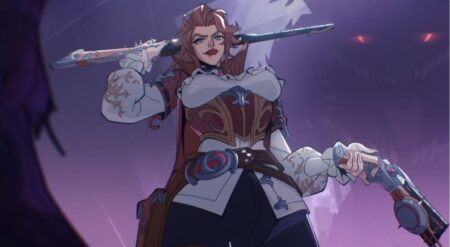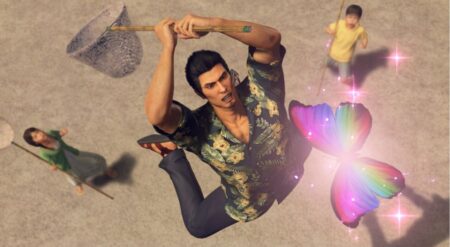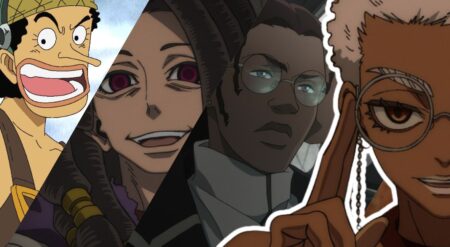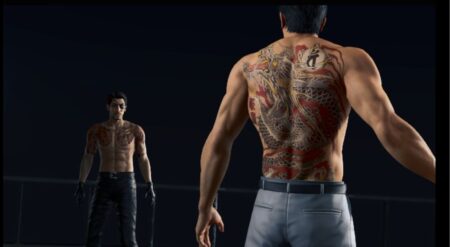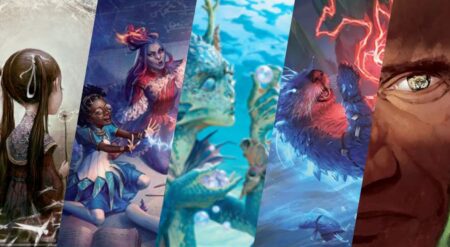Cinema acts as a means to see beyond our understanding and reconcile parts of ourselves and the lives of those around us that were previously unexplored and unrecognized. There’s a reason that Roger Ebert once equated movies to being a “machine that generates empathy.” We watch films and engage with art to feel something, anything, that picks away at our subconscious until something new blooms. Fantasy, in particular, allows for engagement as we’re transported into new worlds and environments far removed from our sense of reality that still speak to the human condition. The Lord of the Rings trilogy remains so endeared to many, as they spoke to our inner fears and longing for more through the guise of elves, hobbits, and other mythical beings. That combination of fantastical and real emotion makes The Lord of the Rings: The Return of the King such a powerful final installment. The hero faces a sort of death — a place of no return, at least — and as viewers (or readers), we’re left with the tumultuous experience of having to reckon with what that after means.
For a while, there was a rule when I was growing up that I could only see a film if I’d read the book it was based on first. This was, at best, a soft rule that my parents tried to enforce, aided by my nerdy self consuming any and all books within reach. From Moby Dick to Anne of Green Gables, I adhered to this rule, only running into a minor issue when I scrambled to finish The Return of the King when I was 12 as the third of the Lord of the Rings trilogy from director Peter Jackson was nearing the end of its theatrical run. I begged, pleaded, to be taken to the film, even though I still had half of the book left. My parents relented, and it remains the only of the three films I’ve ever seen on a big screen, overwhelmed by the sheer artistry that is tough to comprehend as a pre-teen.
I recoiled when Sauron’s army sent the decapitated heads of Minas Tirith soldiers back into the bombarded city and when Frodo was strung up in the web of Shelob. I realized my true, undying love for Aragorn when he stood outside the gates of Mordor on a near-suicidal run. Like so many fans of good, iconic fantasy, I felt the all-consuming pull and elation of watching a journey end on the right note. But I hadn’t finished the book yet, so it bruised when Frodo embarked on his final journey to the Grey Havens, never to set foot again on Middle Earth. The heroes weren’t supposed to choose to leave their friends behind.
At the very least, heroes that have won aren’t supposed to. When Tony Stark dies in Avengers: Endgame, it’s a last Hail Mary, a dawning realization that Iron Man is the only one who can save the day, and the enormity of the sacrifice is felt. In Gladiator, Maximus also dies in battle but is able to kill his antagonist and is suggested to reunite with his murdered wife and child. Akira Kurosawa’s Seven Samurai is drenched in the blood of those who would give themselves over to save the innocent. Game of Thrones and Jujutsu Kaisen use death as a means to highlight the brutality of their world. There, death is used as the signifier of loss of hope or innocence. When heroes die, it’s often to ensure the survival of others, a moment of “blazing glory” and all that where there was no other choice, the ending inevitable.

Frodo won. He won and still, after years of struggling, chose to leave because of the scars he bore due to the emotional battle he endured were too heavy to overcome. It’s not an unhappy ending, but it’s a minor tragedy and a death, even if it’s not technically realized as such in the world of J.R.R. Tolkien. At 12 years old, seeing that in theaters and realizing the immense finality of his fate put death at the forefront of my mind where it often hadn’t been as a kid. This is part of the beauty of the series in that it allows us to reckon with more significant questions and feel both sadness for the fact that he’s leaving and realizing that doesn’t mean it’s tragic.
It’s simply another aspect of living, a certainty that it will end, but that to live and then die doesn’t make life an inherent tragedy but a journey. Annie Lennox recorded the song “Into the West” for the film, which gorgeously captures the essence of that feeling, the dawning realization that death is inevitable but not to linger or dwell on that thought. The song haunts and sticks to you like glue, especially as a young, impressionable viewer who has yet to honestly think about the significance of death beyond what we’re presented with as kids. Lennox sings:
“Don’t say/We have come now to the end/White shores are calling/You and I will meet again.”
The Lord of the Rings is a series in which mortality ebbs and flows throughout the narrative. We’re introduced to the story through the concept of death, so much so that a friend and I sat huddled at 17, 18, maybe in our rooms talking about the film, Lennox’s song, and how it helped ease us through our anxiety of dying. The age of elves is ending; the time of man is upon us, though destined too to die.

A central part of the narrative is Aragorn and Arwen’s love story, where the latter must sacrifice her immortality for her to not die long after his body fails him. The Lord of the Rings: The Two Towers’s scene at Helms Deep is all about the life of soldiers who are meant to anticipate their demise. Love stories and the will to live are all given intricately woven tangents that deal with our own abilities to transcend and deal with the grief of our own anticipated mortality. Can we love enough to shorten our lives, and might we sacrifice ourselves for the lives of others — these lines of thought and these dealings with death echo throughout the trilogy.
It’s been twenty years since the release of The Lord of the Rings: The Return of the King, yet the ending still lingers. 32 instead of 12, there’s a more significant emotional potency to the farewell since we now know that since the moment he picks up the ring, Frodo is sealed into this inescapable destiny. What are we but vessels impacted by those we interact with, their own interior lives imprinting onto our own? It’s the same with film — the stories born we bear witness to, the stories we seek out that stick with us, they change us. The Return of the King is part of my DNA and forever changed how I interacted with film, partly due to the heavy questions about life, death, and all that lay in between.
The hero “dies,” the story ends, and we’re left to untangle what that means to us as viewers. At 12, it meant contending with mortality, and at 32, it meant dealing with how quickly those 20 years passed. The Lord of the Rings: Return of the King asks us to reckon with death and then heals that emotional wound by reminding us that death isn’t a tragedy but the final passage of life. The trilogy serves as a potent reminder that the best fantasy can impart devastating realizations and compassionate stories that speak to our shared universality as humans.


